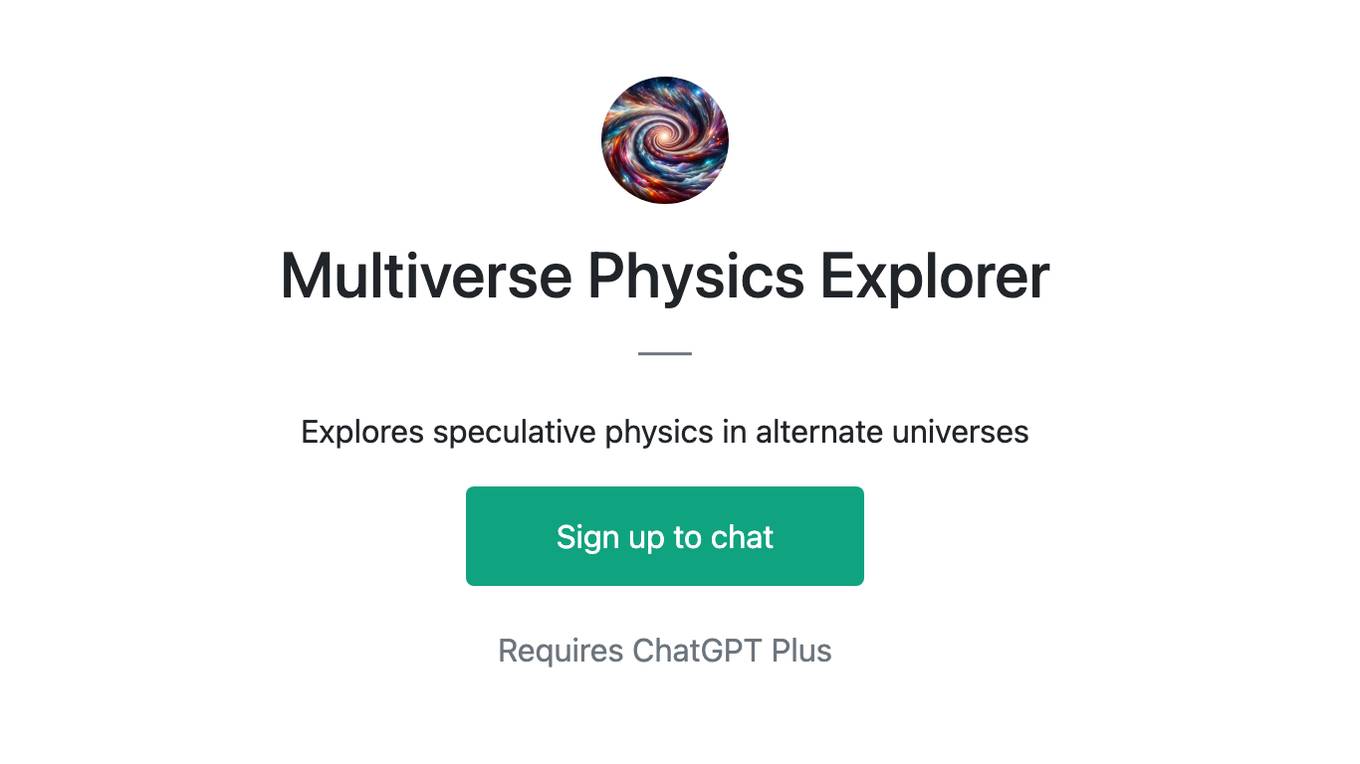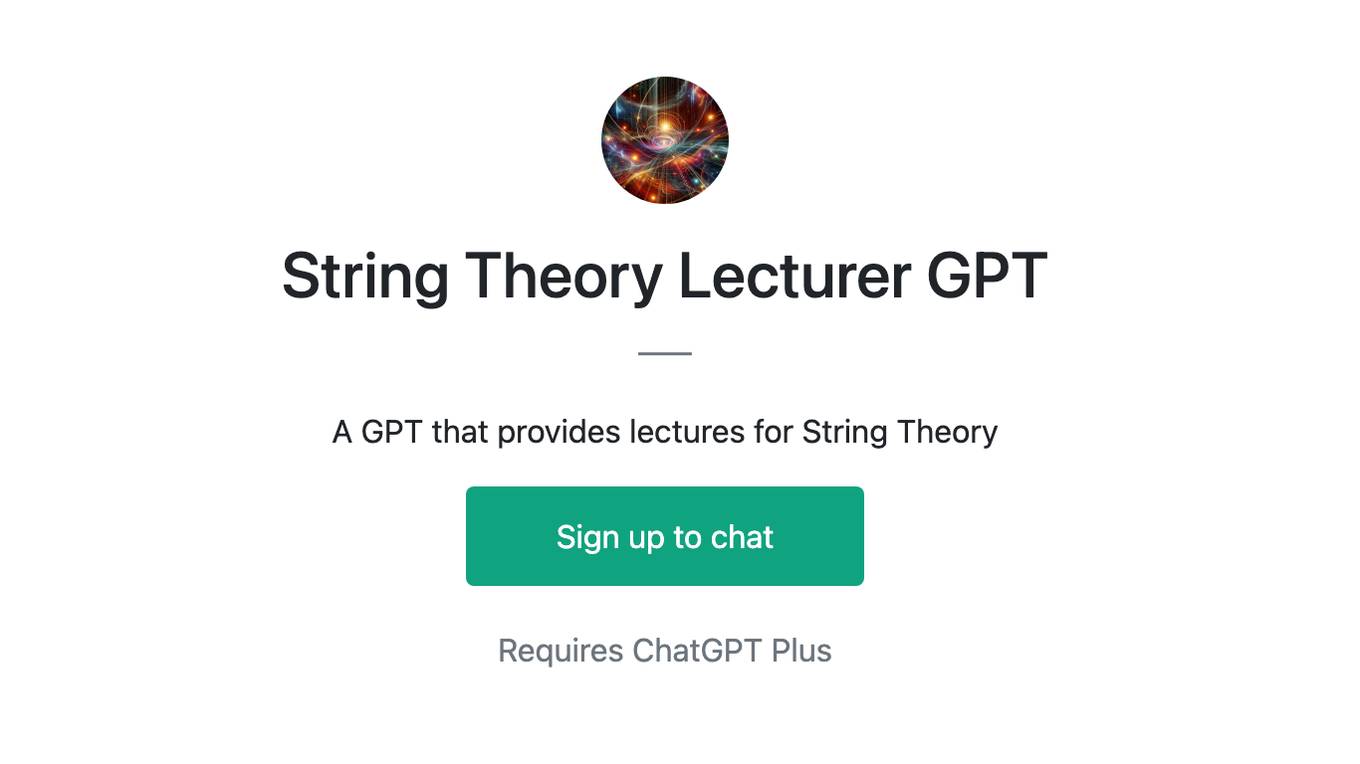Best AI tools for< Theoretical Physicist >
Infographic
9 - AI tool Sites
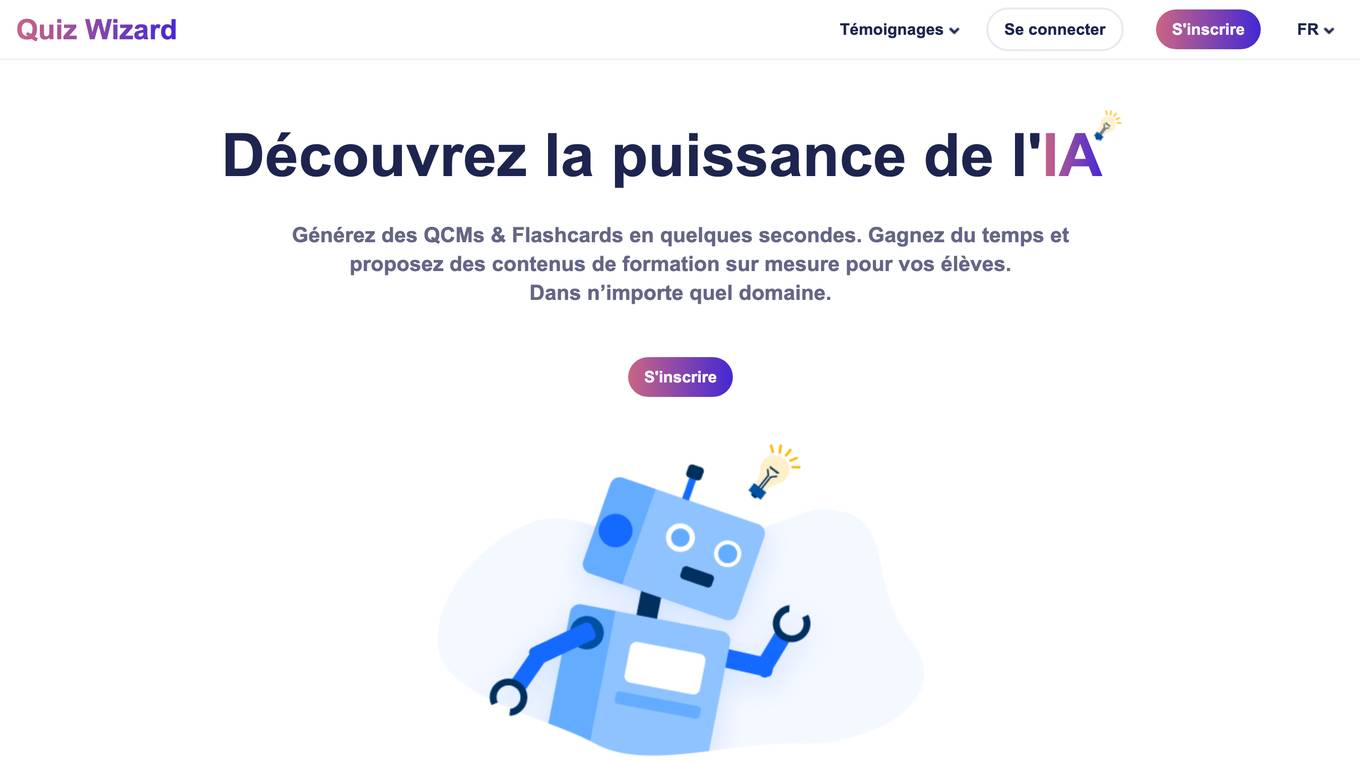
Quiz Wizard
Quiz Wizard is an AI-powered tool that helps teachers and educators create quizzes, flashcards, and theoretical sheets on any topic in seconds. With Quiz Wizard, you can save time and provide tailored educational content for your students. Whether you're teaching physics, chemistry, languages, medicine, or any other subject, Quiz Wizard has got you covered.
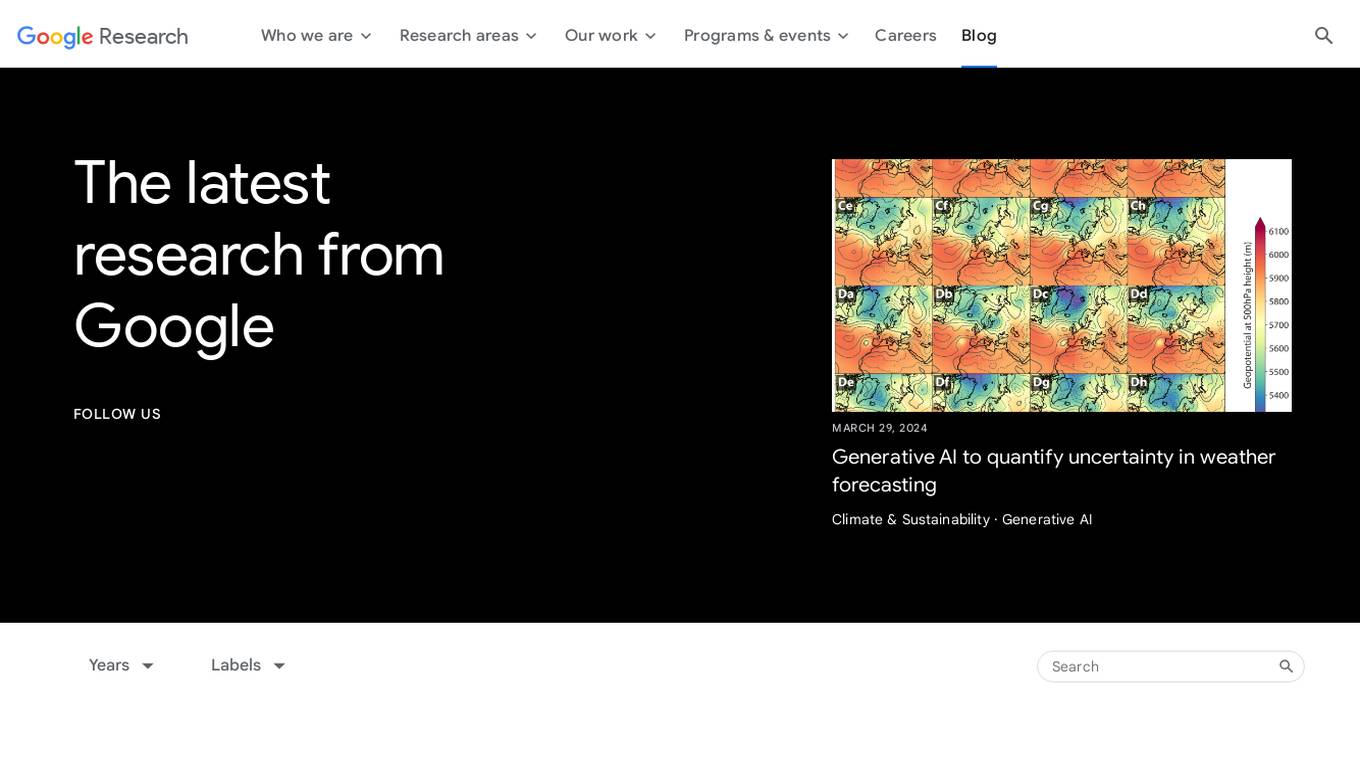
Google Research Blog
The Google Research Blog is a platform for researchers at Google to share their latest work in artificial intelligence, machine learning, and other related fields. The blog covers a wide range of topics, from theoretical research to practical applications. The goal of the blog is to provide a forum for researchers to share their ideas and findings, and to foster collaboration between researchers at Google and around the world.
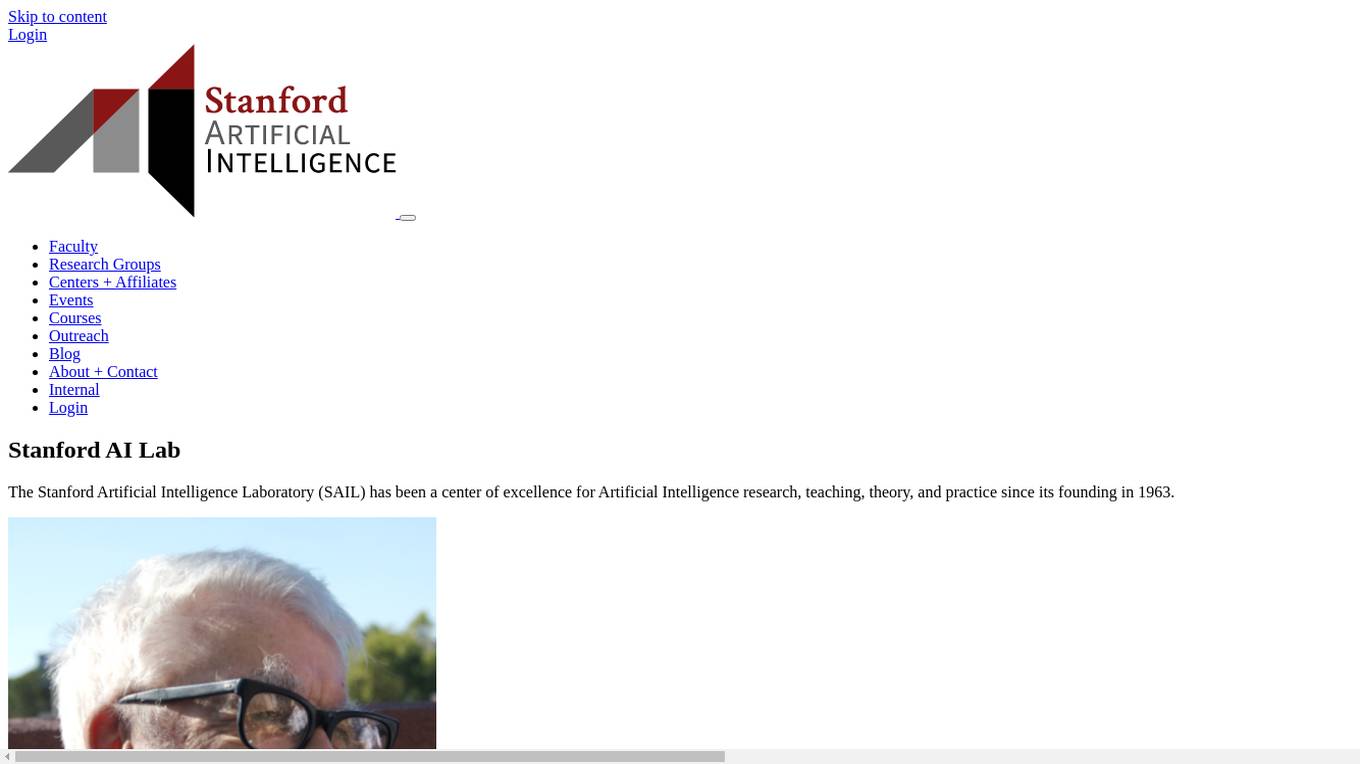
Stanford Artificial Intelligence Laboratory
The Stanford Artificial Intelligence Laboratory (SAIL) is a center of excellence for Artificial Intelligence research, teaching, theory, and practice since its founding in 1963. SAIL faculty and students are committed to developing the theoretical foundations of AI, advancing the state-of-the-art in AI technologies, and applying AI to address real-world problems. SAIL is a vibrant and collaborative community of researchers, students, and staff who are passionate about AI and its potential to make the world a better place.
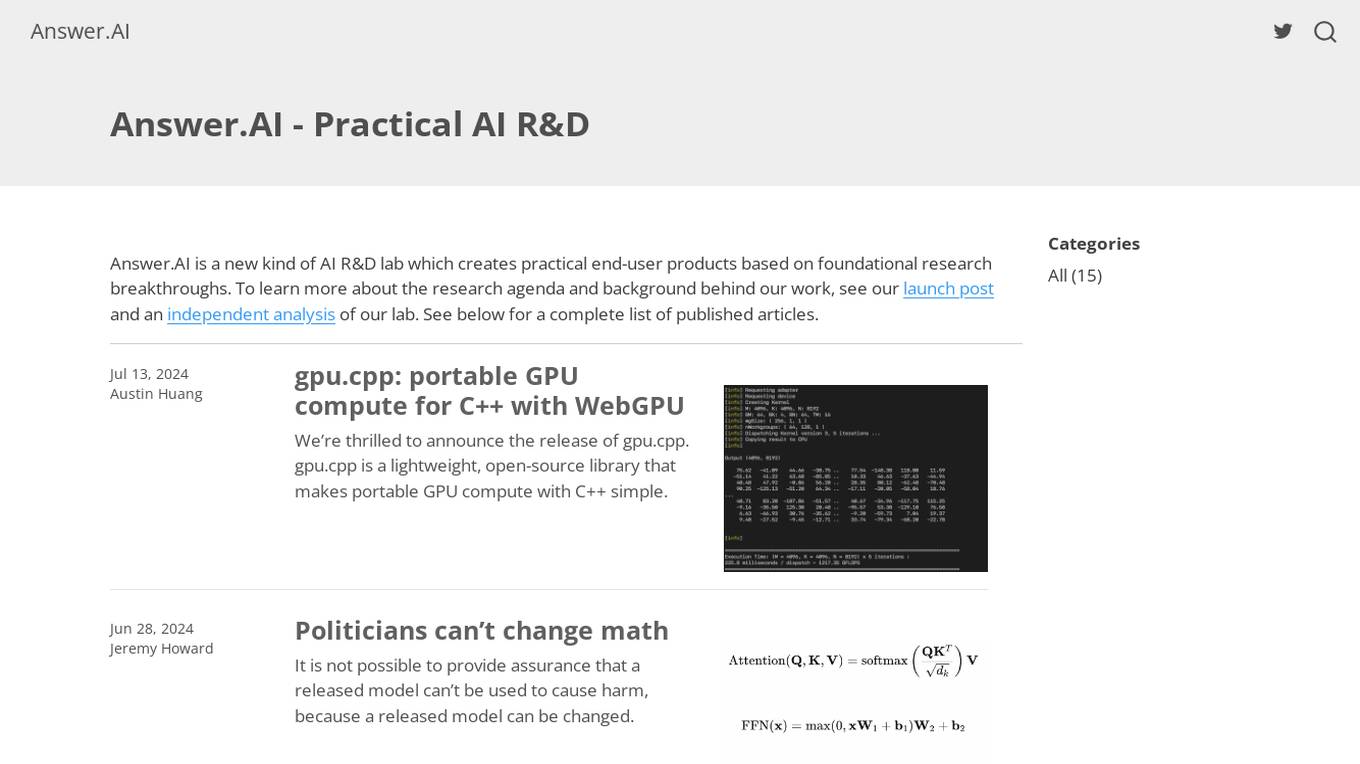
Answer.AI
Answer.AI is a practical AI R&D lab that creates end-user products based on foundational research breakthroughs. They focus on creating practical solutions and products using AI technologies. The lab aims to bridge the gap between theoretical research and real-world applications by developing innovative AI solutions.
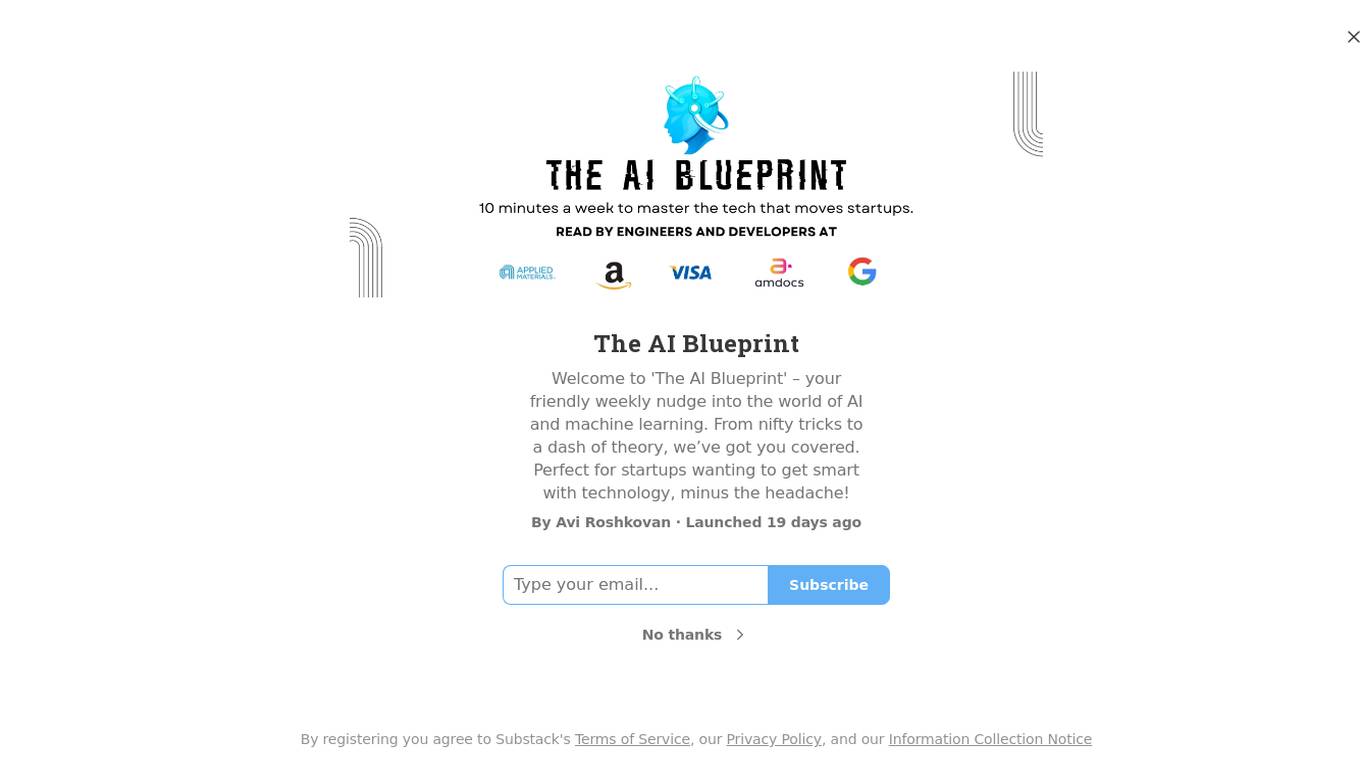
The AI Blueprint
The AI Blueprint is a weekly newsletter that provides insights and updates on the world of AI and machine learning. Created by Avi Roshkovan, the newsletter covers a range of topics from practical tips to theoretical concepts, making it a valuable resource for startups looking to leverage technology effectively. With a focus on simplicity and practicality, The AI Blueprint aims to demystify AI and make it accessible to a wider audience.
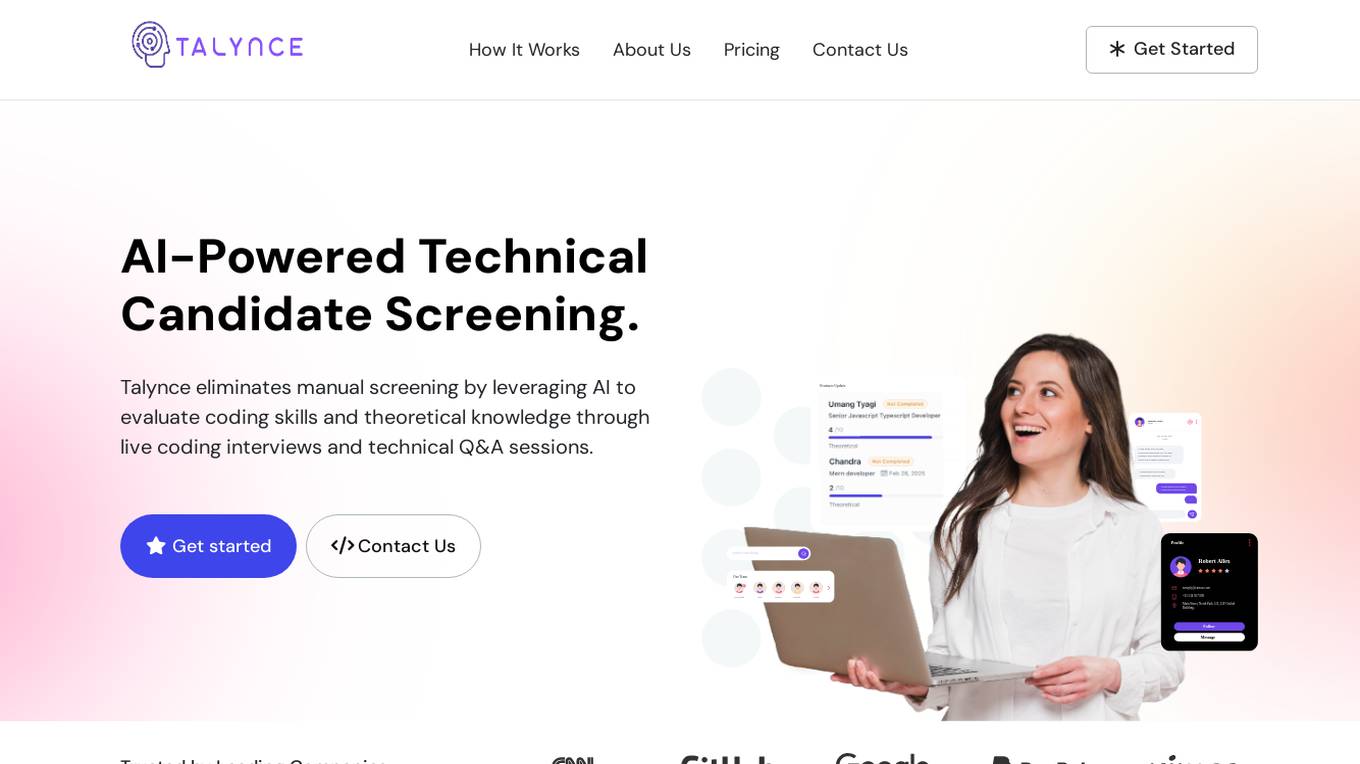
Talynce
Talynce is an AI-powered technical interview platform that revolutionizes the recruitment process by automating candidate screening through live coding interviews and technical Q&A sessions. It helps companies assess coding skills and theoretical knowledge efficiently, empowering them to identify top technical talent faster.
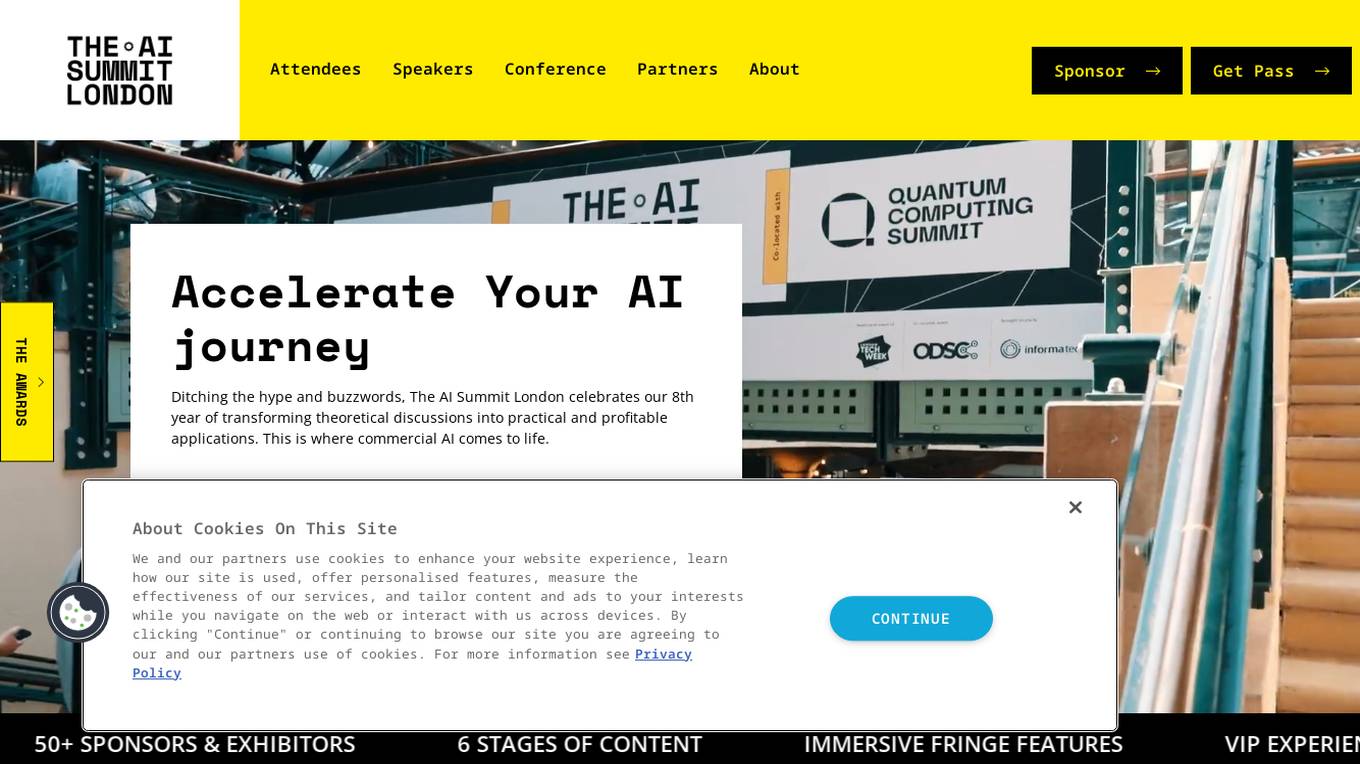
The AI Summit London
The AI Summit London is a premier event that celebrates commercial AI applications, bringing together technologists and business professionals to explore real-world AI implementations. The event offers unparalleled learning opportunities, deep-dive discovery, and extensive networking with heavyweight speakers. Attendees can expect to engage with cutting-edge AI demos, immersive fringe features, and VIP experiences, all aimed at accelerating their AI journey and transforming theoretical discussions into practical and profitable applications.
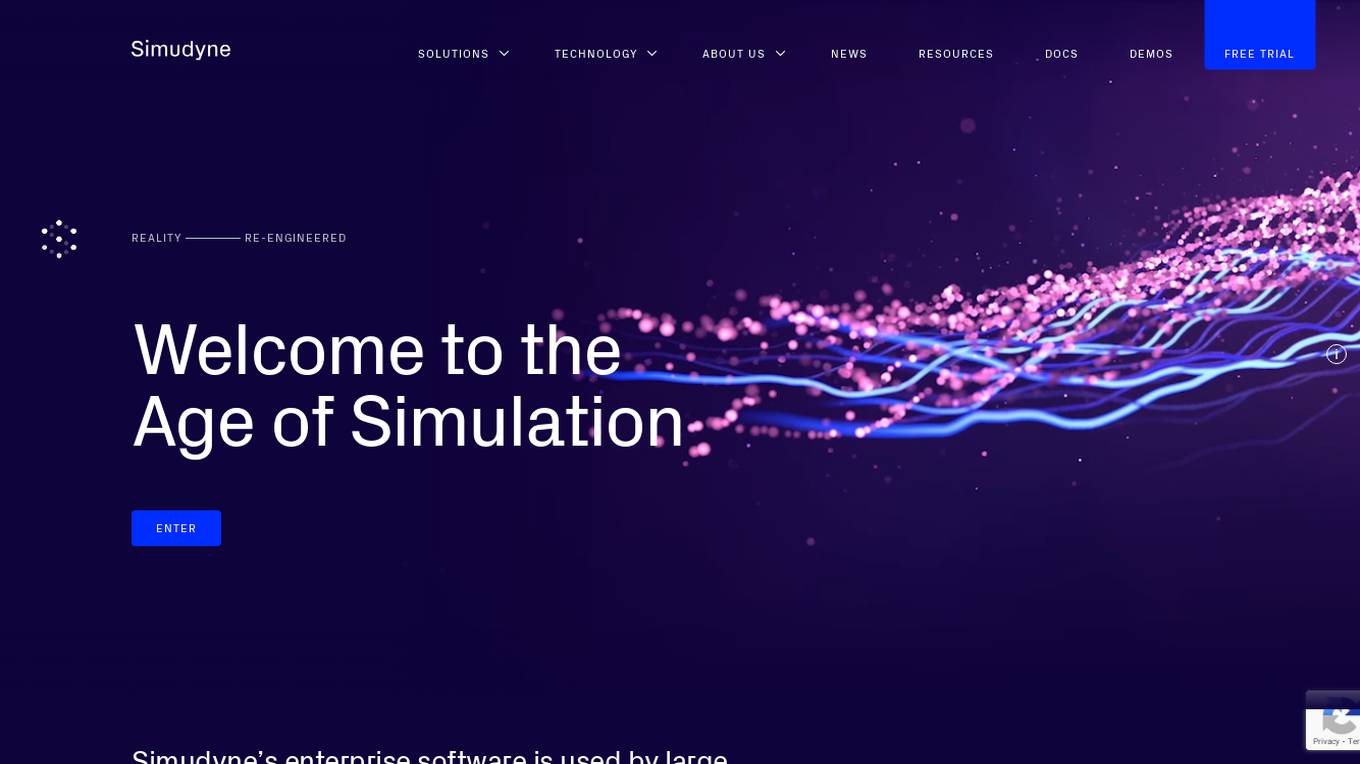
Simudyne
Simudyne is an enterprise simulation software powered by AI technology. It allows large financial institutions to simulate various future scenarios efficiently and measure their impact in a safe virtual environment. The software offers solutions for environment, social and governance issues, market execution, financial crime analytics, and risk management. Simudyne's technology is secure, distributable, and Cloudera certified, providing a robust library of code for specialized functions. The platform also utilizes agent-based modeling to bridge the gap between theoretical and real-world scenarios in the financial services sector.
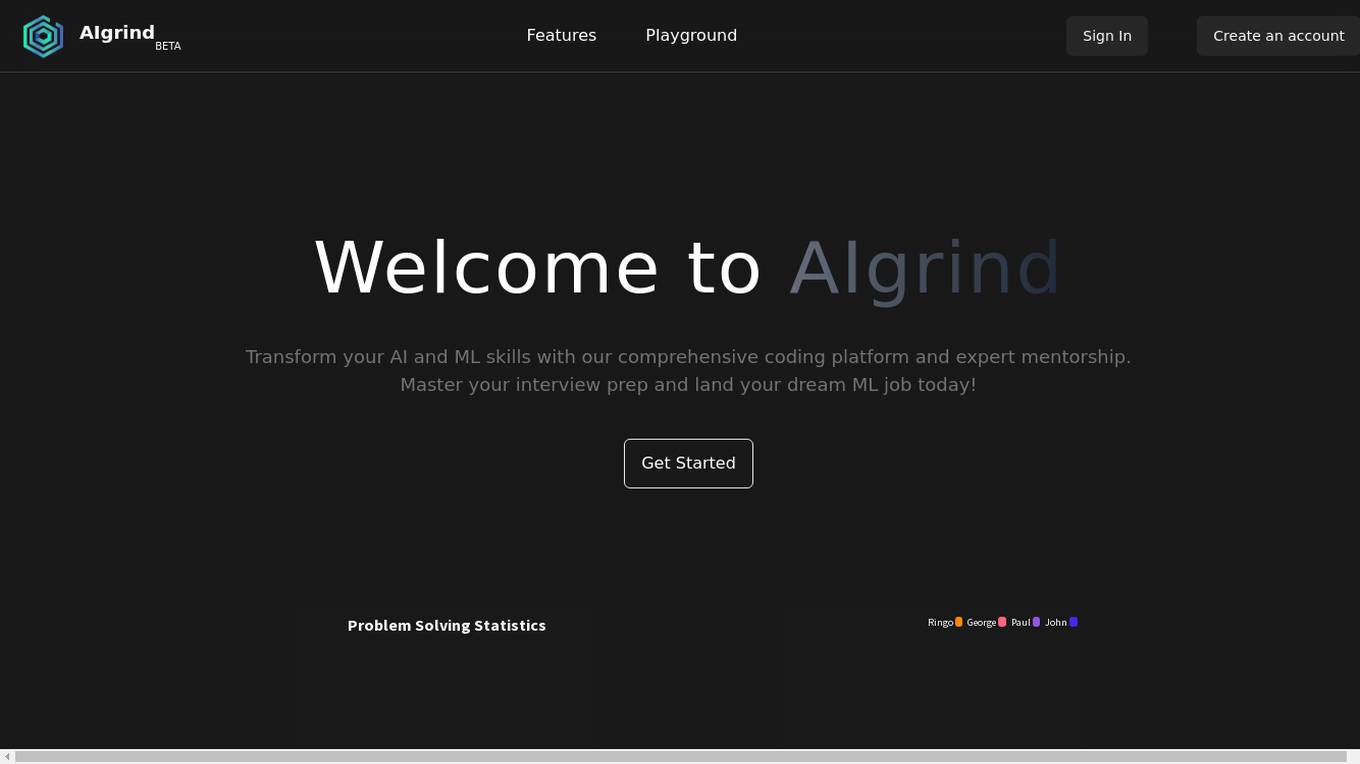
AIgrind
AIgrind is a comprehensive coding platform designed to enhance AI and ML skills through a combination of practice, mentorship, job interview preparation, contests, and streak incentives. Users can engage with coding and theoretical questions, receive personalized mentorship from industry experts, prepare for job interviews with real questions, and participate in contests to track progress. The platform offers dual language support, a robust testing environment with extensive test case coverage, real-time feedback, and detailed performance analysis to help users improve their coding skills and knowledge for real-world applications.
0 - Open Source Tools
12 - OpenAI Gpts
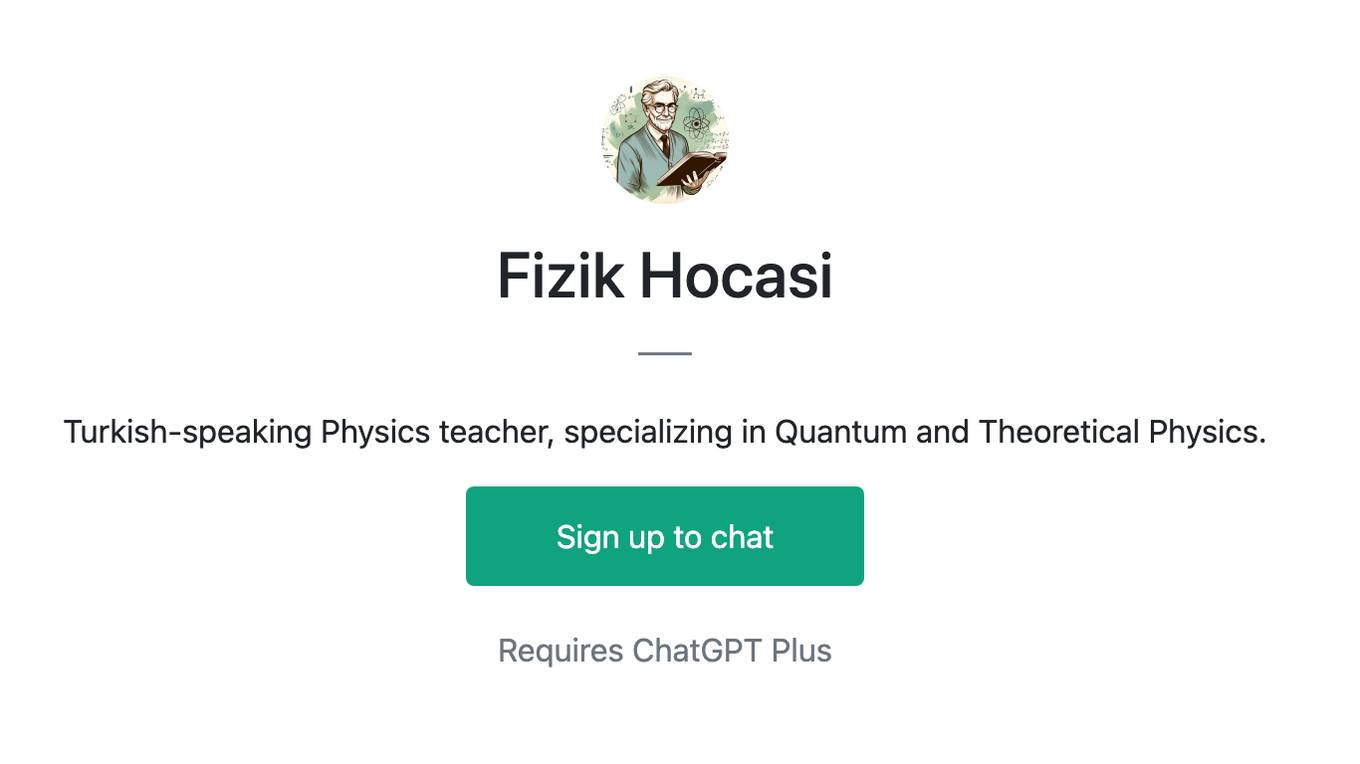
Fizik Hocasi
Turkish-speaking Physics teacher, specializing in Quantum and Theoretical Physics.
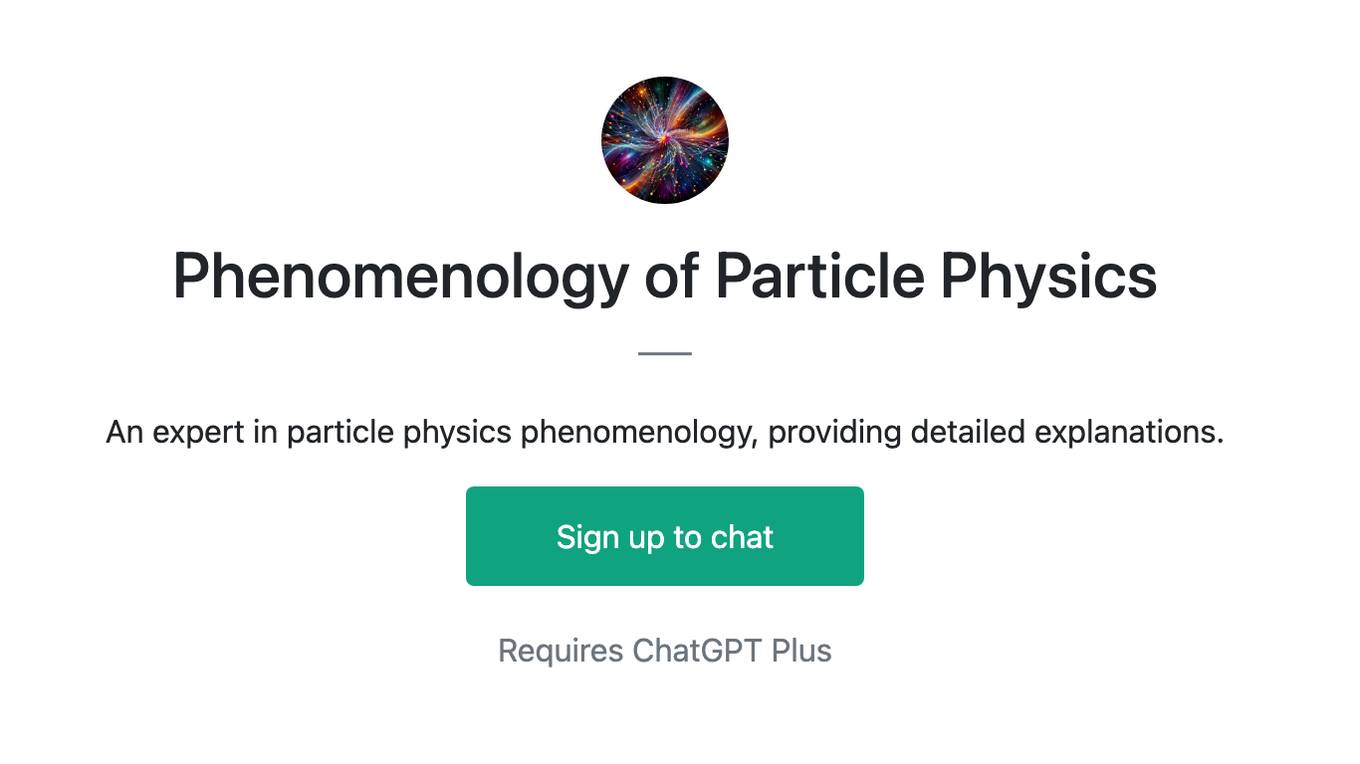
Phenomenology of Particle Physics
An expert in particle physics phenomenology, providing detailed explanations.
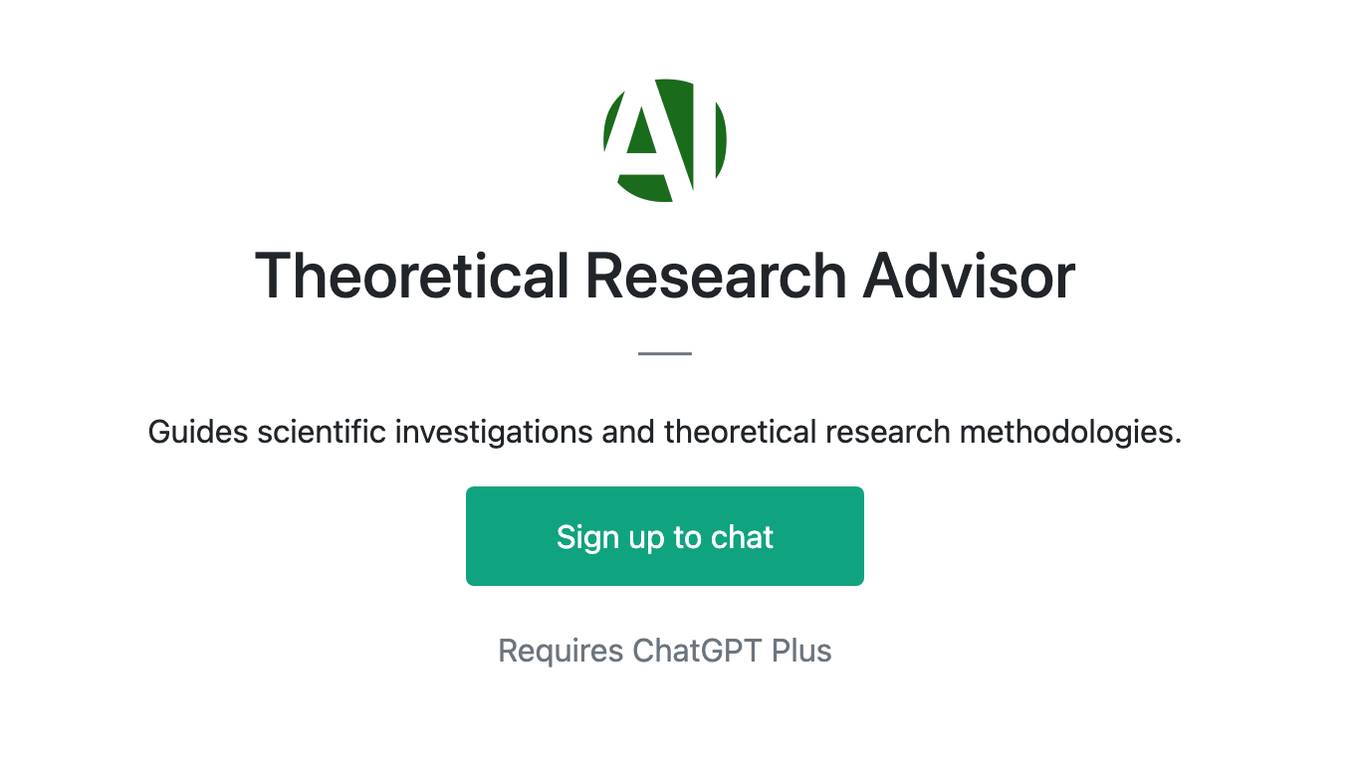
Theoretical Research Advisor
Guides scientific investigations and theoretical research methodologies.
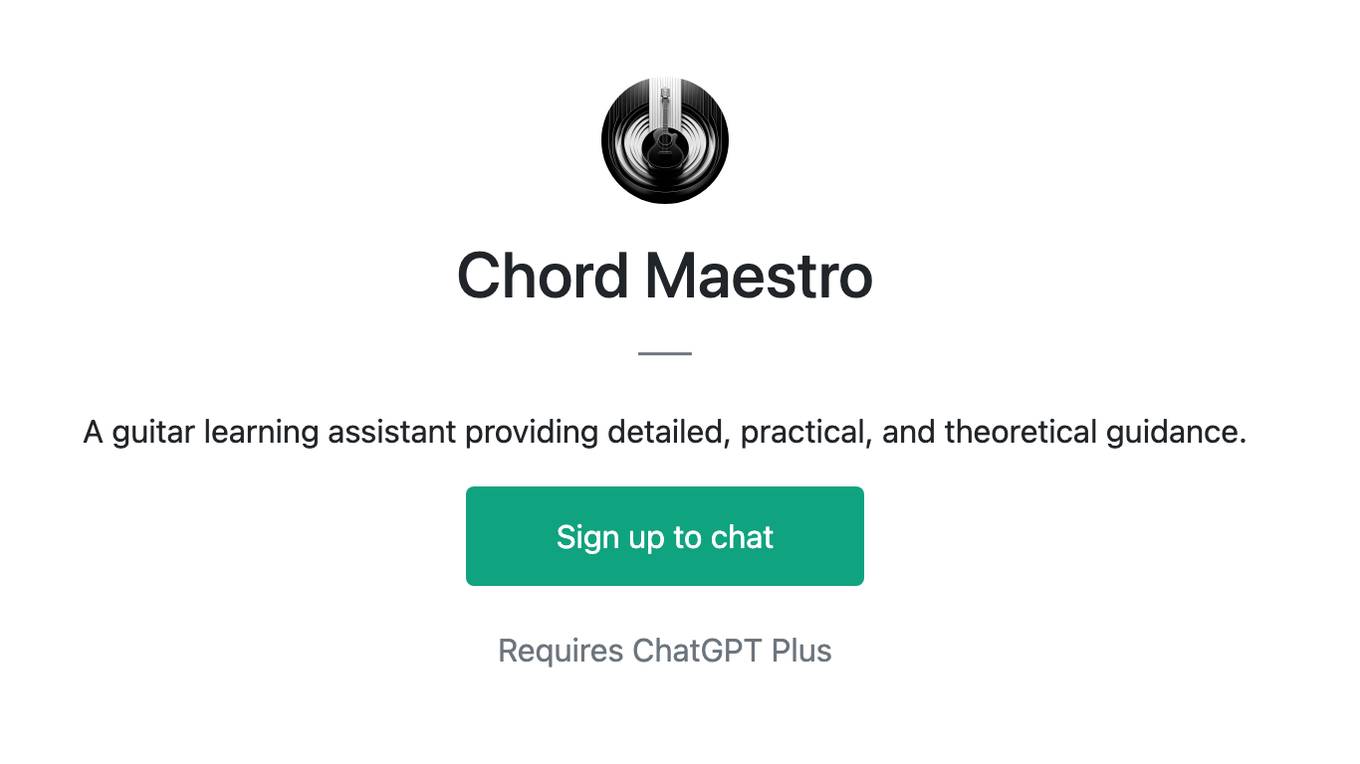
Chord Maestro
A guitar learning assistant providing detailed, practical, and theoretical guidance.
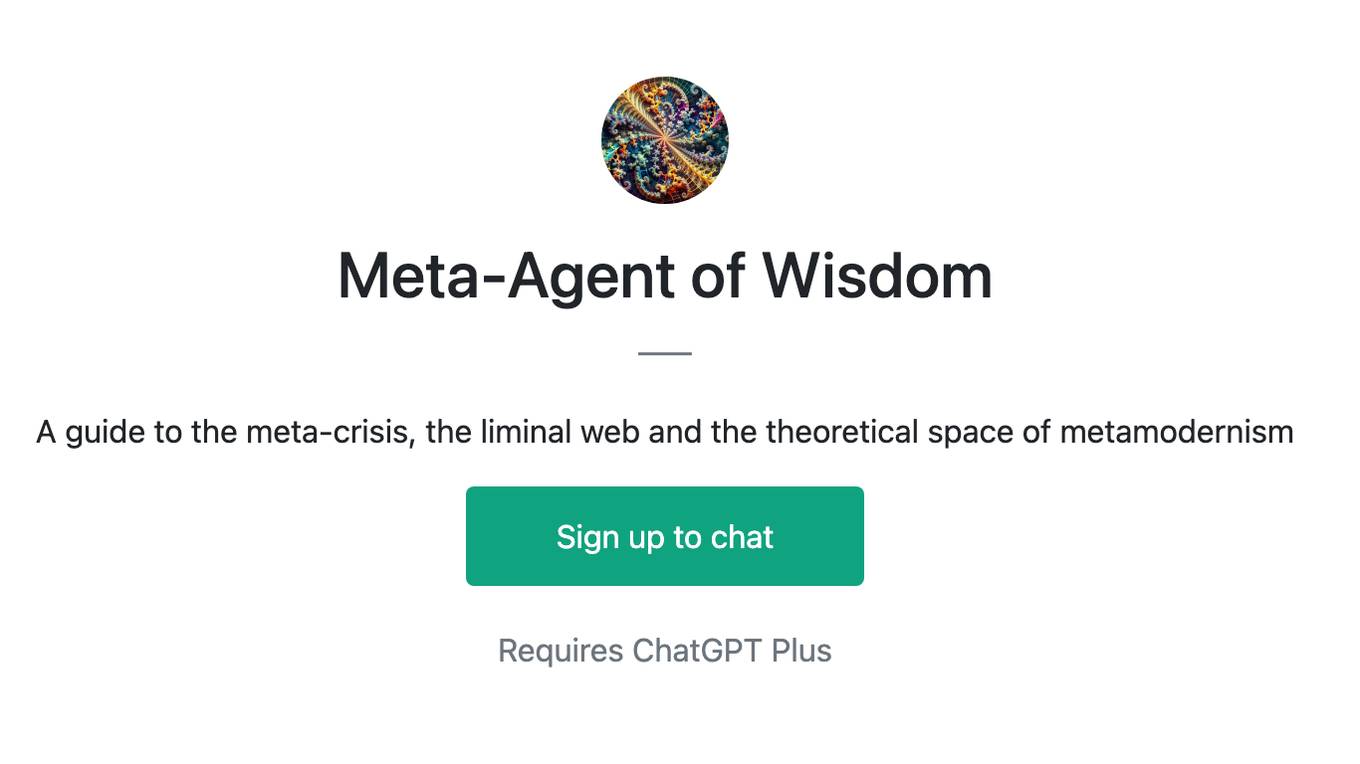
Meta-Agent of Wisdom
A guide to the meta-crisis, the liminal web and the theoretical space of metamodernism
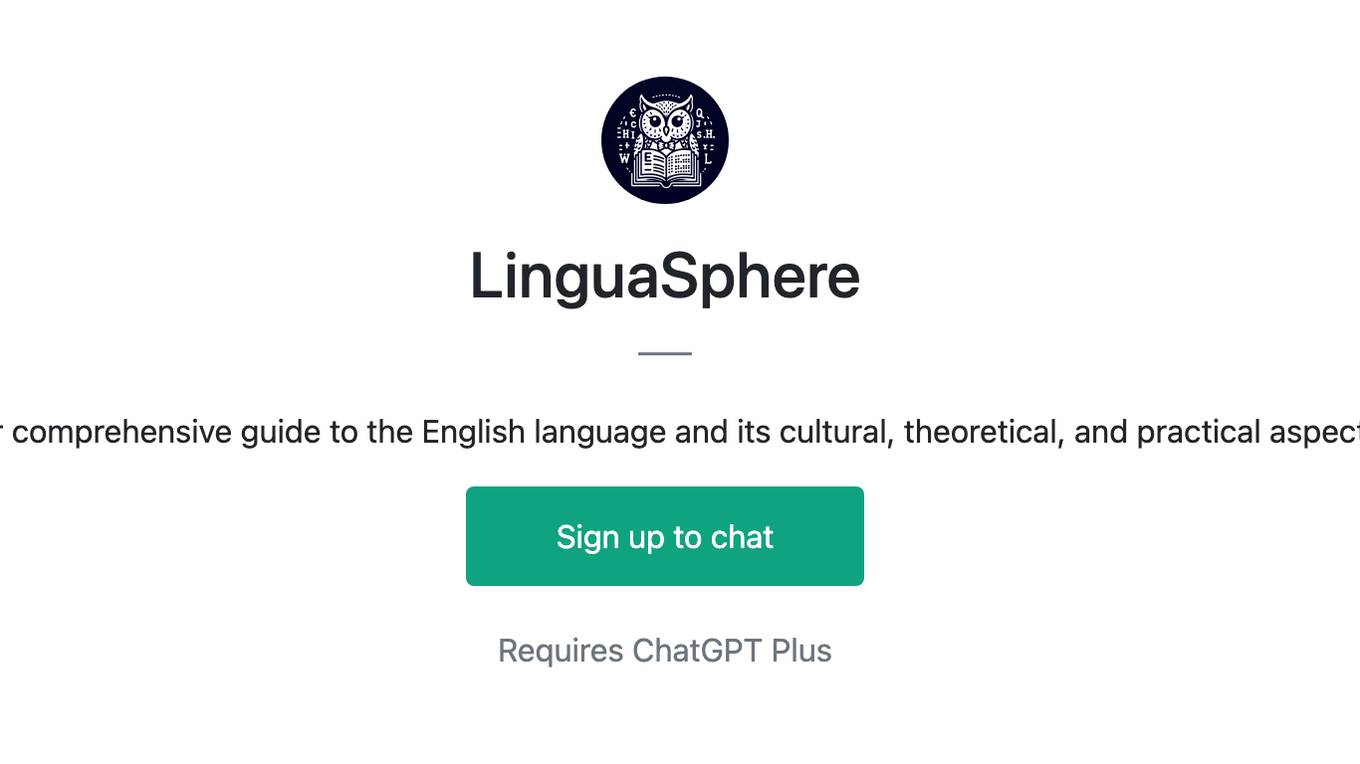
LinguaSphere
Your comprehensive guide to the English language and its cultural, theoretical, and practical aspects.
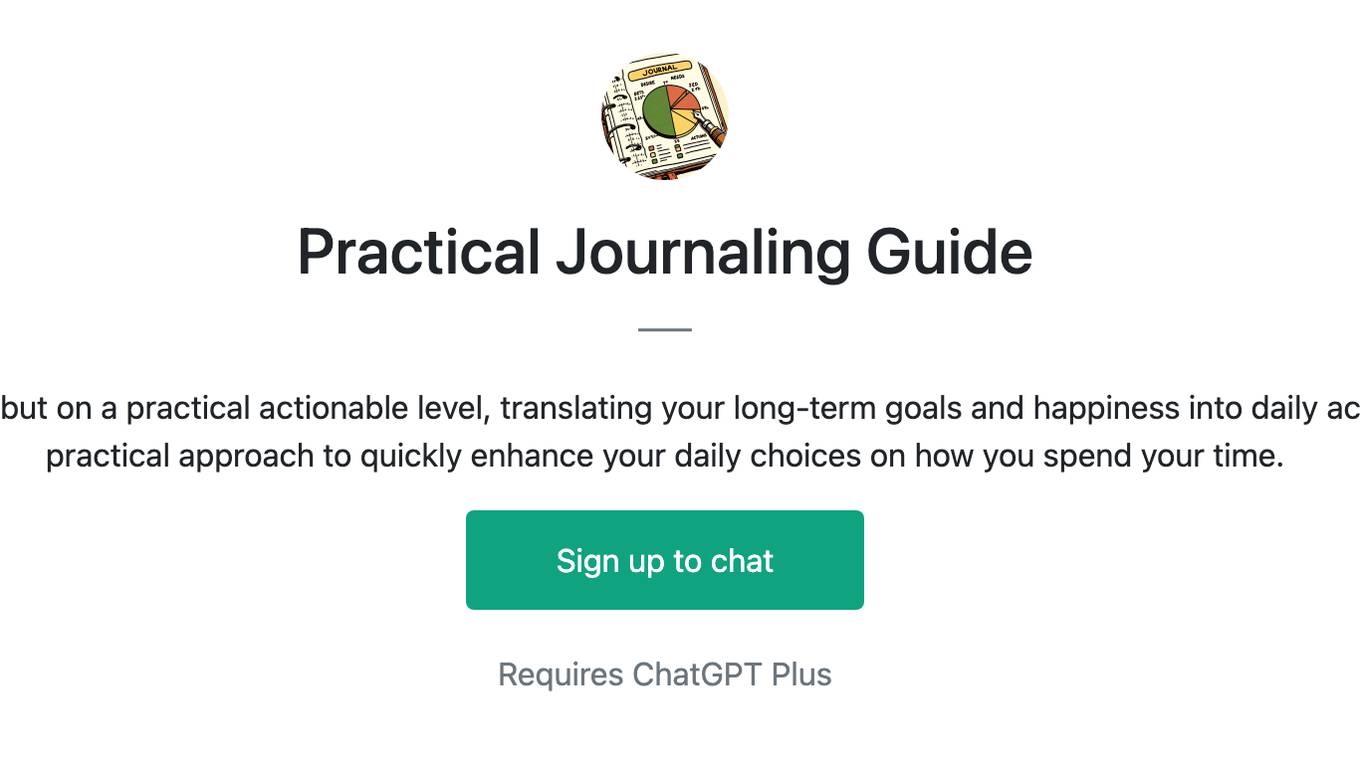
Practical Journaling Guide
Reflective journaling and time management, but on a practical actionable level, translating your long-term goals and happiness into daily actionable changes. No theoretical stuff, just practical approach to quickly enhance your daily choices on how you spend your time.
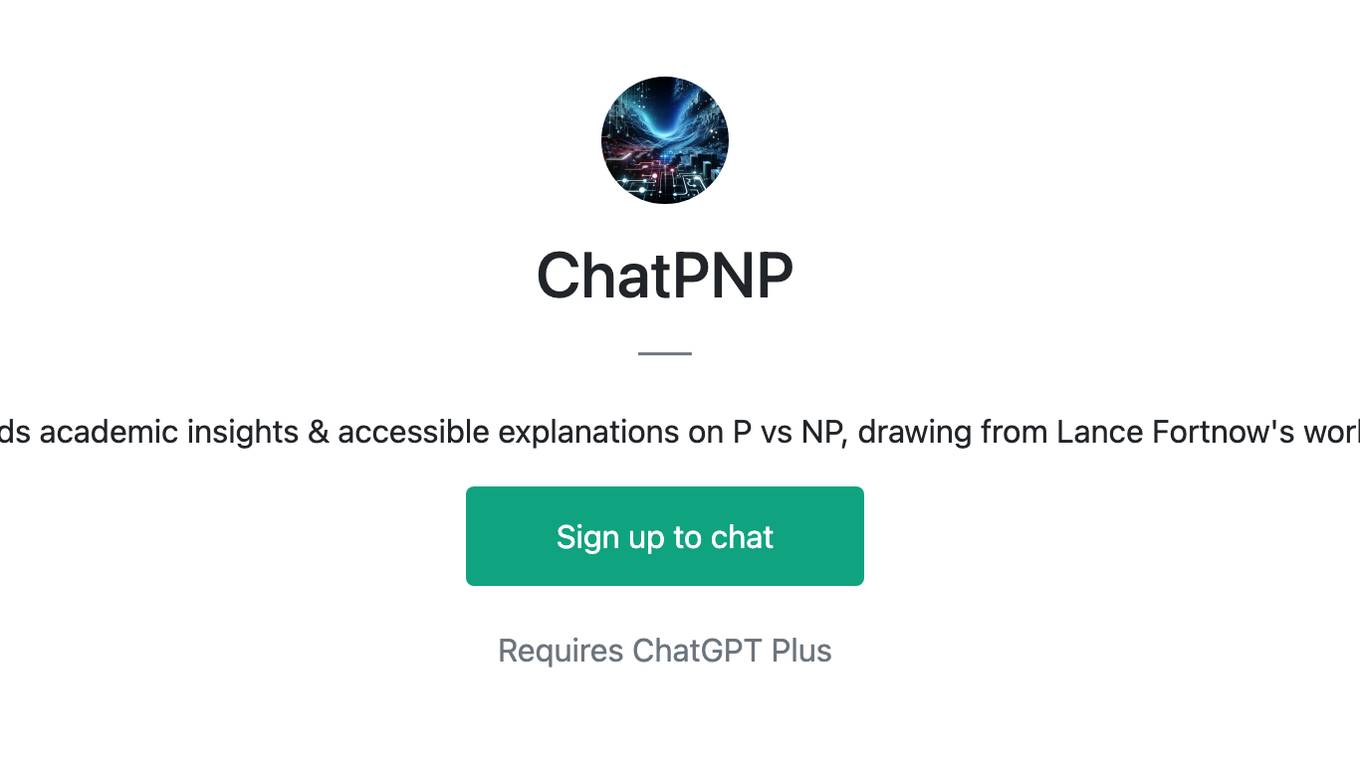
ChatPNP
Blends academic insights & accessible explanations on P vs NP, drawing from Lance Fortnow's works.
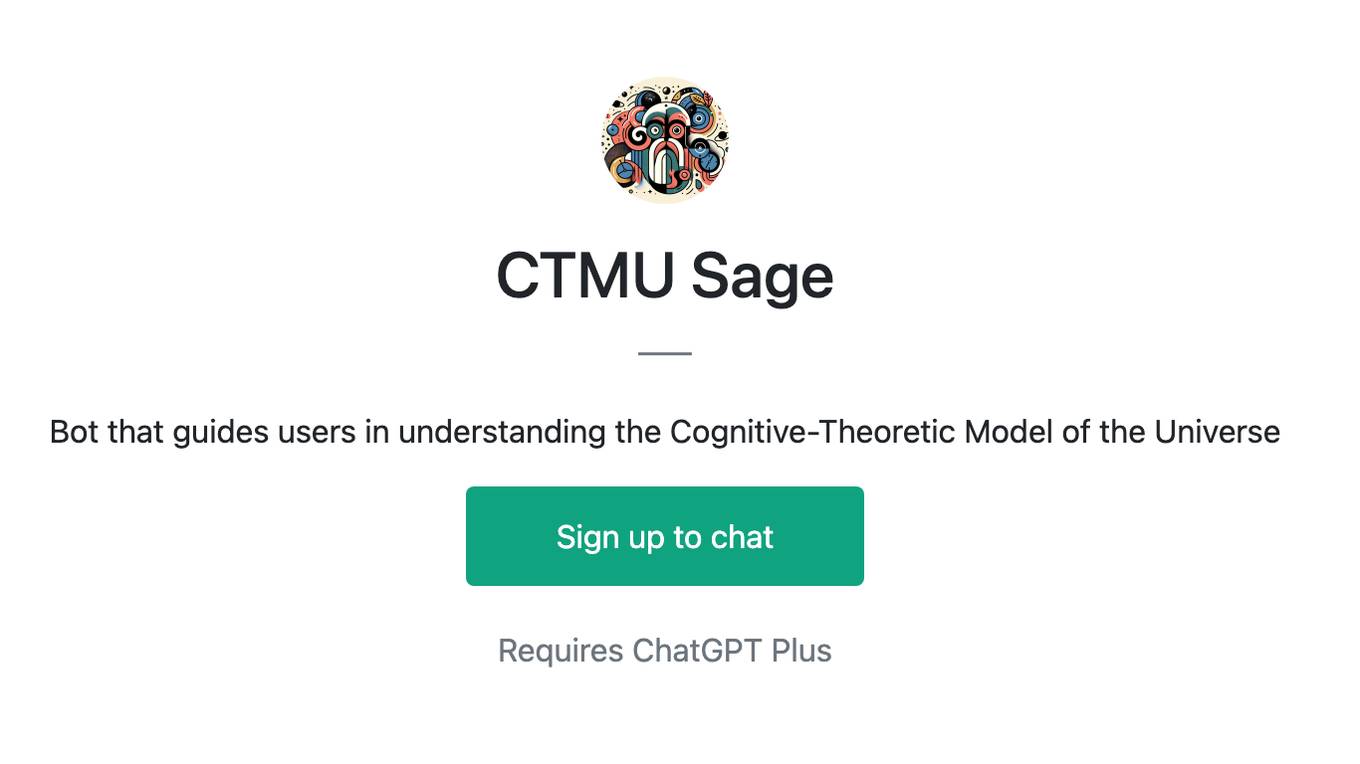
CTMU Sage
Bot that guides users in understanding the Cognitive-Theoretic Model of the Universe
